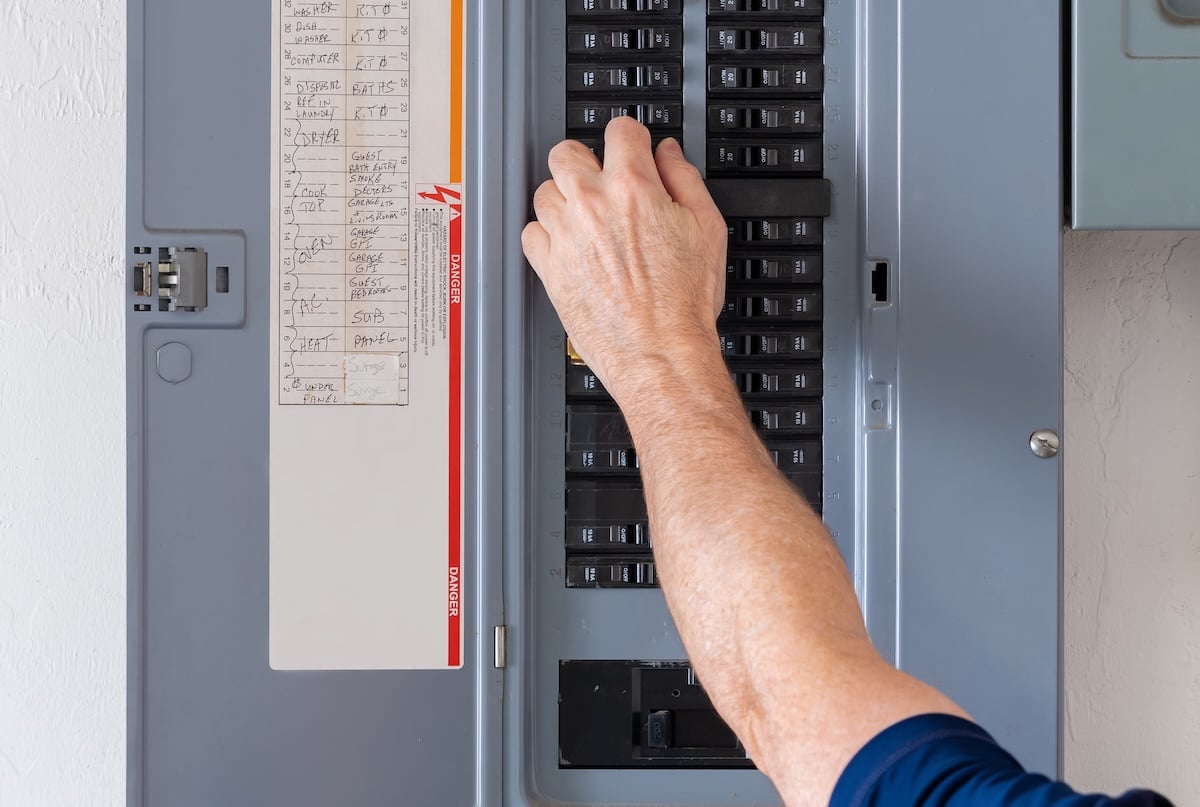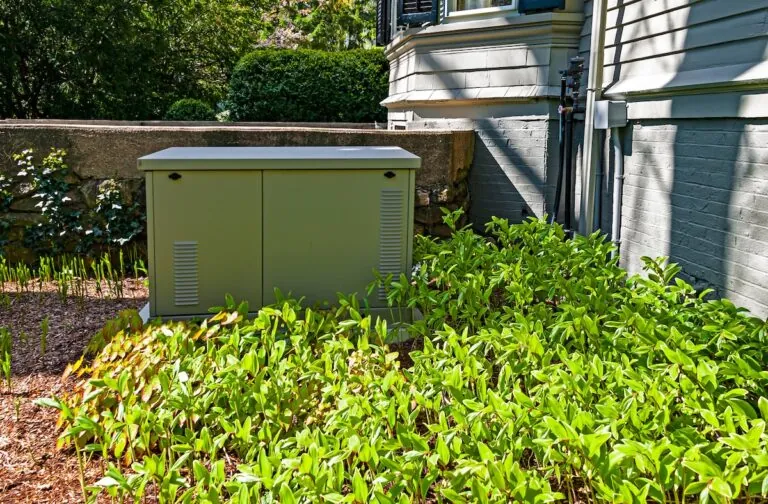If you’ve ever lost power to part of your home and discovered a switch flipped in your electrical panel, you’ve likely experienced a tripped breaker. While this is a common safety mechanism designed to protect your home’s electrical system, it can be frustrating when it keeps happening or you’re unsure how to fix it.
In this guide, we’ll explain what causes a breaker to trip, how to reset it safely, and what to do if the problem doesn’t go away.
- Breakers trip to prevent overheating, fire risk, and equipment damage
- Overloaded circuits, short circuits, and ground faults are the most common causes
- You can often reset a breaker yourself, but recurring trips may require professional help
🔌 What Is a Circuit Breaker?
A circuit breaker is a switch located inside your home’s electrical panel (also called a breaker box). Its job is to automatically shut off power to a circuit when it detects a dangerous condition like excessive current, a short circuit, or a ground fault.
When the breaker trips, it moves to the “off” or center position, cutting power to outlets, lights, or appliances on that circuit.
This safety feature prevents wires from overheating and protects your home from electrical fires or appliance damage.
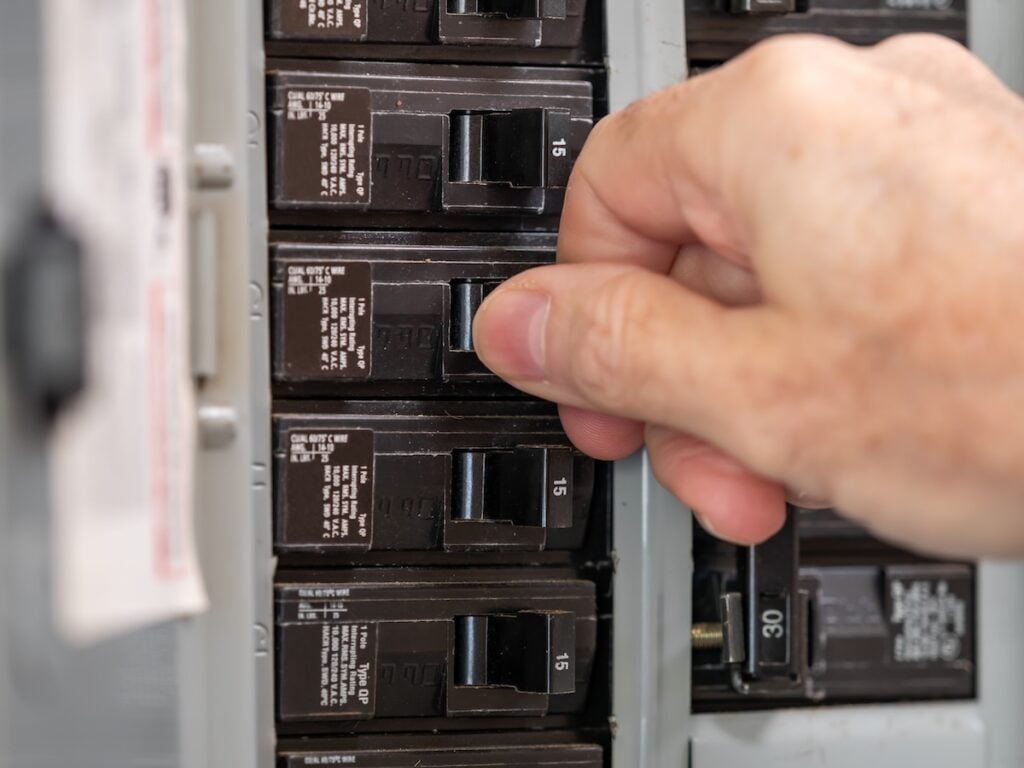
👉 Common Reasons a Breaker Trips
Understanding what causes a tripped breaker can help you prevent future issues. Here are the most frequent culprits:
1. Circuit Overload
This is the most common cause of tripped breakers. It happens when you plug in too many devices or appliances that draw more power than the circuit is designed to handle.
- Example: Running a space heater, hair dryer, and vacuum cleaner on the same circuit
- The breaker shuts off to prevent overheating of wires behind the walls
2. Short Circuit
A short circuit occurs when a hot wire touches a neutral wire, causing an immediate surge of electricity. This is more serious than an overload and can pose a fire risk.
- Signs include a breaker that trips instantly when reset or visible scorching or buzzing
- May be caused by damaged wiring, loose connections, or faulty outlets
3. Ground Fault
A ground fault happens when a hot wire touches a ground wire or metal outlet box. These are particularly dangerous in areas with moisture, like bathrooms, kitchens, or outdoor circuits.
- May cause tingling sensations, shocks, or frequent breaker trips
- Ground fault circuit interrupters (GFCIs) are designed to detect and prevent these
4. Faulty Breaker or Wiring
In some cases, the breaker itself is worn out or there’s an issue with your home’s wiring. If the breaker trips with nothing plugged in or won’t reset at all, this may be the cause.
- Older homes or outdated panels may be more prone to electrical issues
- Faulty breakers can become dangerous if not replaced
✅ How to Safely Reset a Tripped Breaker
- Locate the electrical panel: Most panels are found in basements, garages, utility rooms, or closets. Open the panel door to access the breakers.
- Identify the tripped breaker: Look for a switch that’s in the middle position or misaligned. Some breakers may show red or orange indicators.
- Turn the breaker fully off: Move the switch to the full “off” position to reset the internal mechanism.
- Turn the breaker back on: Flip the switch firmly to the “on” position. If power returns and the breaker stays in place, the issue was likely temporary.
- Monitor the circuit: Note what was running before the trip. If it happens again, unplug some devices and reduce the load before resetting.
If the breaker trips again immediately, call a licensed electrician—it may be a short circuit or ground fault.
📋 What to Do if the Breaker Keeps Tripping
A breaker that trips repeatedly is not something to ignore. Here’s how to troubleshoot further and when to call for help.
Unplug Everything on the Circuit
Remove all devices or appliances connected to the affected outlets and lights. Reset the breaker and slowly plug things in one at a time to see if a specific item triggers the trip.
- A faulty appliance or charger can create a short or draw too much power
- Try plugging the item into a different circuit to test its effect
Check for Pattern or Timing
Does the breaker trip only when you use the microwave and toaster at the same time? Or when a storm rolls through? Patterns can point to overload or moisture-related faults.
Avoid Using Extension Cords and Power Strips
Too many devices plugged into a single outlet—especially with high-wattage appliances—can easily overload a circuit. Distribute your electronics across different outlets or circuits if possible.
Don’t Ignore Burning Smells or Sparks
If you hear crackling, smell something burning, or see scorch marks near outlets, shut off the circuit immediately and contact a licensed electrician.
These signs indicate a serious electrical hazard that should not be handled without professional expertise.
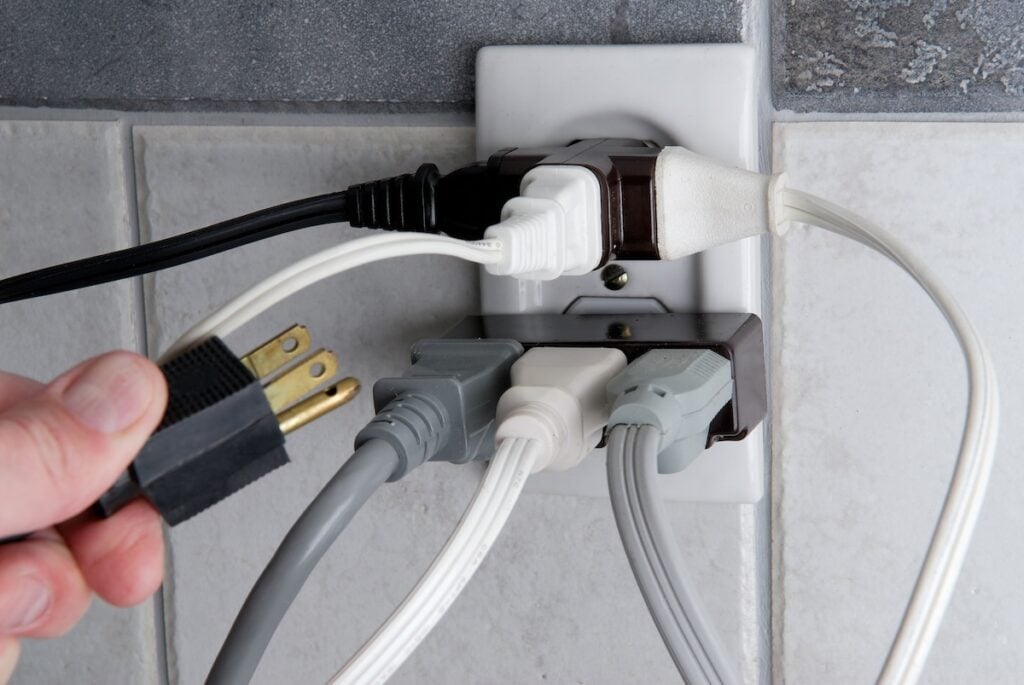
🤔 Can You Upgrade a Breaker or Circuit?
Yes. If a specific area of your home often trips breakers—like a home office or kitchen—you may benefit from a panel or circuit upgrade.
- Add dedicated circuits for large appliances like dishwashers, microwaves, or HVAC units
- Upgrade old wiring to meet modern demand and code
- Install arc fault or ground fault breakers for extra protection
Genz-Ryan can assess your home’s electrical load and recommend a safer, more efficient system to reduce future trips and interruptions.
❗️ Preventing Future Breaker Trips
While some issues are out of your control, these tips can help reduce the chances of future electrical problems.
- Replace old or damaged appliances that draw excessive power
- Avoid plugging too many items into one outlet
- Use surge protectors for sensitive electronics
- Schedule annual electrical inspections, especially in older homes
- Keep your panel updated to meet modern power demands
Regular maintenance helps catch small issues before they become major problems.
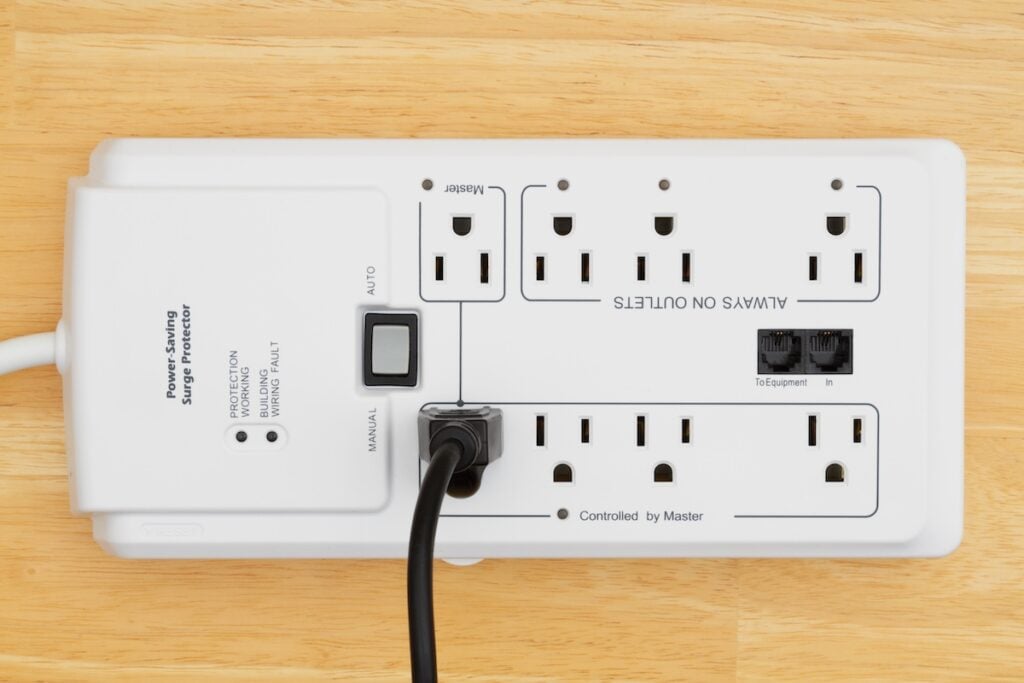
👍 Know What to Do When a Breaker Trips
A tripped breaker is a sign that something needs attention—whether it’s a simple overload or a more serious electrical issue. While resetting a breaker is often quick and easy, recurring trips should be addressed before they lead to damage or safety risks.
If you’re dealing with frequent power loss or a breaker that won’t reset, contact Genz-Ryan today for a free quote and expert service. Our electricians will diagnose the problem and get your home powered safely again.



